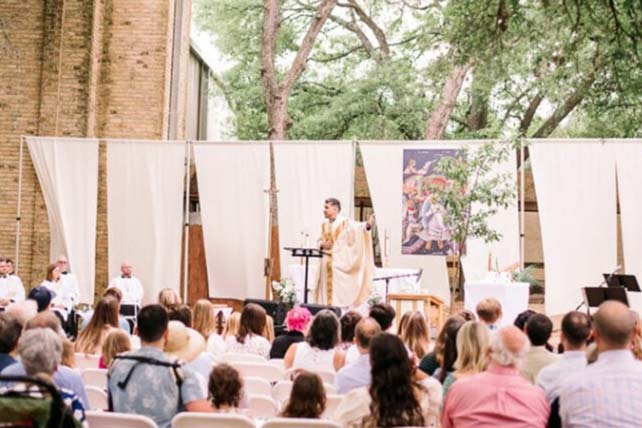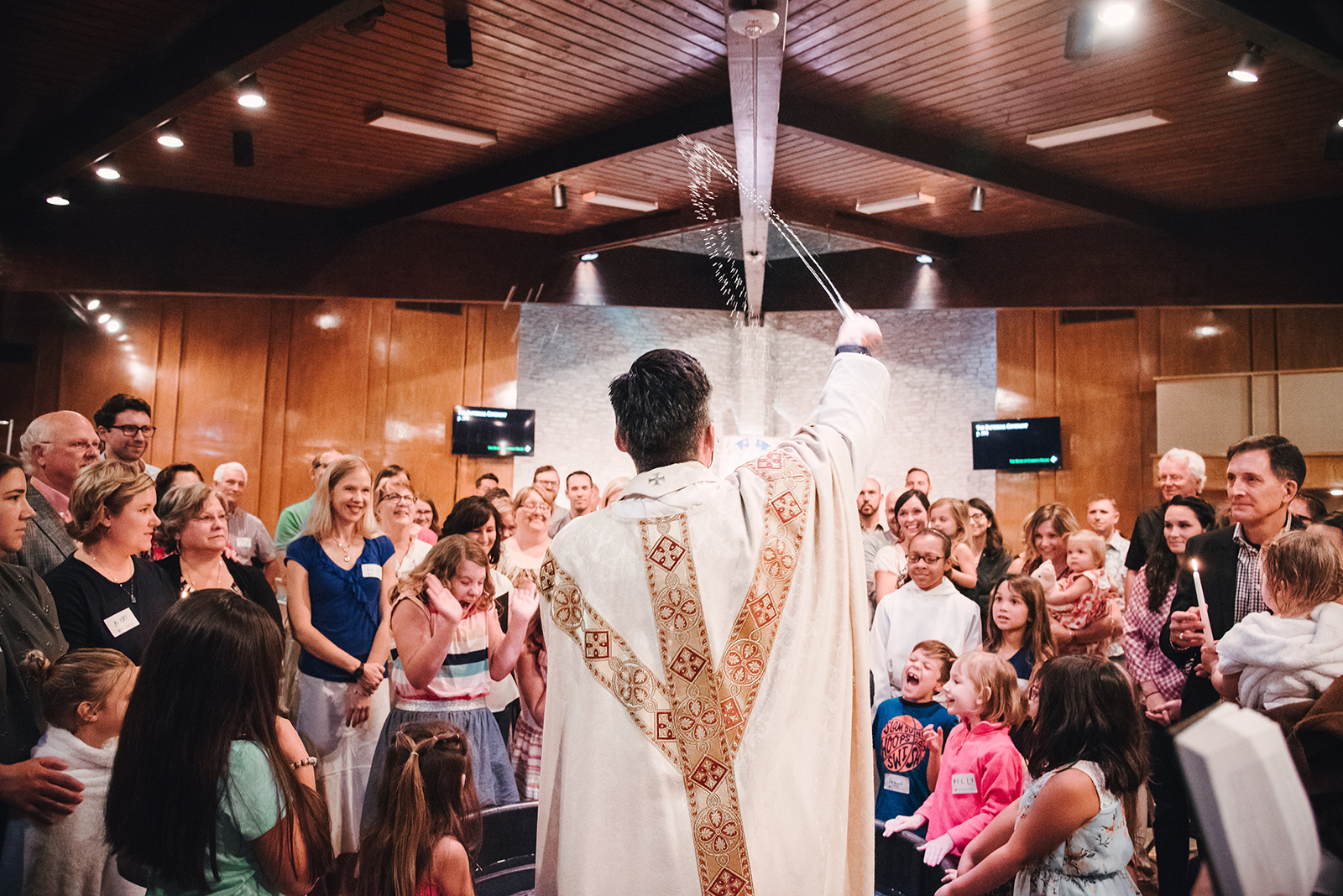Who attends Resurrection?
It’s probably majority post-evangelical — people wanting to be in a room with the lights on, where they’re involved. Then there’s a bunch who came from Catholic or Orthodox backgrounds, and probably 25% of people had never stepped foot in the church.
There’s another pocket of people who were connected to the Anglican churches in town, but not very many. And then it was a lot of word-of-mouth in the neighborhood. So the makeup of our church is very South Austin. You have young families with kids, a huge Latino population and more affluent families. And every age.
The younger people want an expression of church that isn’t power hungry and abusive and coercive. I think there is a sense, especially among younger people, that we need a humble and gentle Christianity. Also, there’s a lot of interest in liturgy. We’re not quite Catholic, but we’re definitely not megachurch evangelicals. So we checked a unique set of boxes for people.
What are some of the most significant ways that Resurrection has evolved since 2015?
The pandemic years were a microcosm of the ways we’ve changed. We were dealing with white supremacy and racism, beginning to name that in sermons and in prayers. Also, we were reckoning with the ways that patriarchy has been slightly out of view for a lot of us men. And from the very beginning, we’ve also had sexual minorities in our community. We know Jesus well enough to know he would be around them.
For the sexual minority community, especially in a very conservative area, it created this really safe place. Word gets out. There was never any sort of intention of being some weird, edgy church; it was just, these are the people that God was bringing to us and we wanted to welcome them.
The thing we have a special ear for is when the most vulnerable speak up. For example, when someone in privilege and in the majority says we don’t need to wear masks, we listen instead to the elderly and medically compromised. I learned this from Latino theologians, especially Gustavo Gutierrez’s theology of liberation, which describes a preferential option for the poor based on Jesus’ ministry. When that clicked for me, I realized I don’t have to be a pastor that listens equally to every concern.
Baptism service at Resurrection Anglican Church in Austin, Texas. Photo © Kelly Carlson
How did Resurrection discern its denominational affiliation?
In late April, the news came out about the archbishop of Uganda giving vocal support for the imprisonment and execution of gay people in Uganda. There was an interview with ACNA Archbishop Foley Beach where instead of plainly rejecting the legislation as evil, it was this really softened response. I had people in our church who printed out the article and asked, is this us? Is this what we’re part of?
That week, I told Bishop Todd Hunter, a longtime mentor of mine, that considering the College of Bishops’ lack of response (to what was happening in Uganda), I couldn’t do this anymore.
It’s creating an unsafe environment for sexual minorities in our church. And he said, graciously, ‘”It sounds like you are in a place of misalignment with the ACNA. I think it would be best for you to bring this to your church, and bring it to a vote in two months.” Because I had expressed that I had lost confidence in the ACNA, I couldn’t with integrity continue with my job if the church voted to stay.


